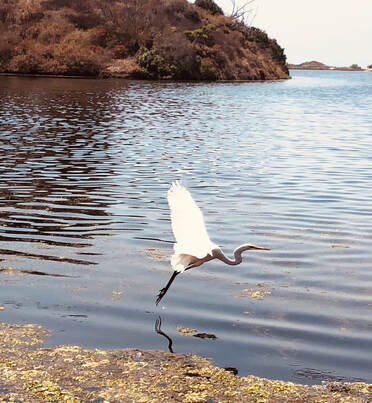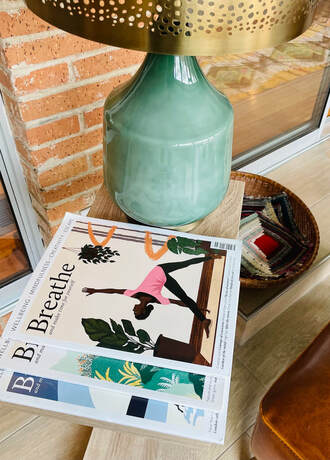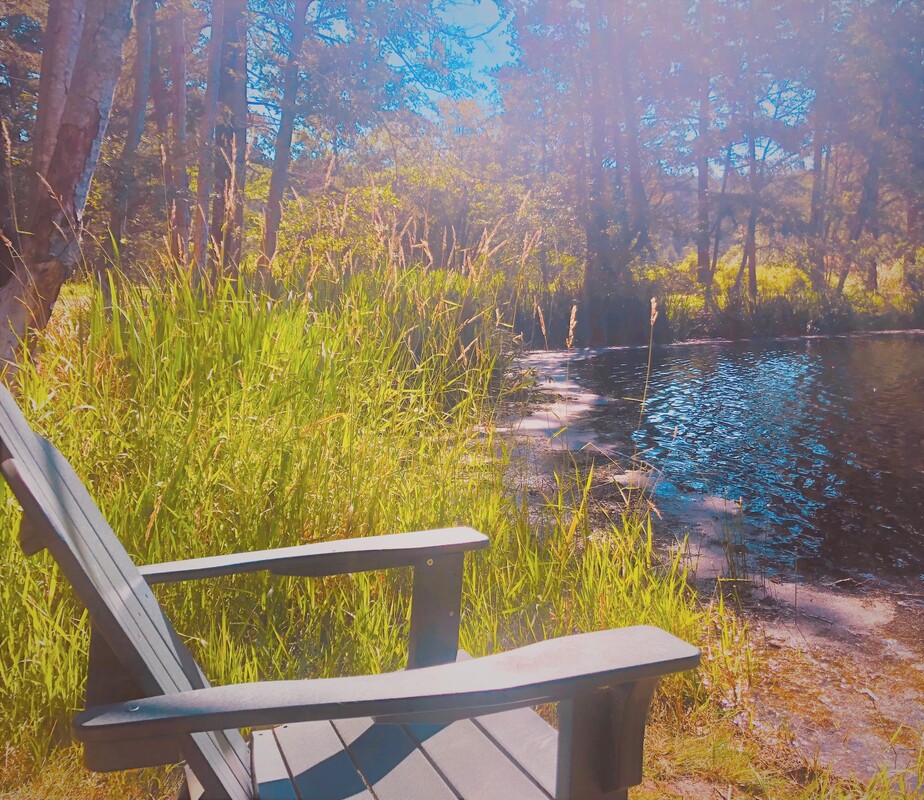|
The Answer is at the Tip of Your Nose Health seekers know that there are many facets to our health and many modalities and practices which we can adopt in the spirit of wellness. At times, it can be difficult to figure out where to start and what to focus on first, and there is no right answer. It is not a linear and sequential process. No one can say, do this first and then this and so on. What we eat, how much we sleep, our stress levels, and how much we move our bodies are often starting points in wellness conversations. Yet, we have one thing in common that we almost never discuss…the breath. We all breathe the same air and this, above all else, keeps us alive. Our first sip of air welcomes us into this world and then often goes unnoticed for many years after that. But what if the breath was the starting point for optimal health? You might be wondering what that means, so let’s talk breath! what if the breath was the starting point for optimal health? Breathing is (not!) BorinG If someone had told me when I was younger that I would spend any amount of time practicing breathing, I would have dismissed the notion straight away. Sure, breathing is important; that is obvious. I would have thought I had better things to do than think about something that happens automatically. Yet, here I am, writing about the breath while still in my own discovery process of understanding how important it is to our health. I am still learning the value of enhancing my health via how I breathe, but where I am now is worlds away from where I started. I know that my breath reflects my thoughts, both conscious and subconscious, and can be a good indicator of how tense or relaxed I am feeling in any given moment. By no means the expert on the breath, I offer ideas and anecdotes as someone who has journeyed deeper into the art of breathing than I ever would have imagined. What is the Most Important Food? While doing my yoga teacher certification years ago, I took a test that asked this very question: What is the most important food? Spinach? Berries? Chocolate? In yoga they say the most important food is breath. I was both curious and confused about this statement. I had spent parts of my childhood fighting for my breath as I dealt with bouts of asthma triggered by virus and flu. After too many years gripped with fear of the tightness in my chest and straining for a full and deep inhalation, I did not want to focus on my breathing ever again. Now this book was telling me it was the most important food, meaning, it is everything. Great. My curiosity was stronger than my defiance and I began to explore this most important process. Don’t Hold Your BreatH I have a wonderful mom who is the best storyteller I know. She is dynamic, dramatic and downright hilarious. When I was younger, she used to regale us with stories from her childhood and one that always stood out to me was her recollection of hyperventilating to the point where my grandpa would calmly command her to breathe into a paper bag. I remember being confused and curious at this image of my eight-year-old mom with her red-haired pigtails blowing into a bag. Even as an adult, when my mom was feeling stress, it would manifest in her body, right in her chest. I would see her trying to get a deep breath, which didn’t seem normal, and looked rather odd because why would breathing be so hard, but the phrase “stressed out” was not in our collective vernacular, and no one in my 1983 world was talking about meditation, yoga, breathing exercises or physiological manifestations of stress. You just breathed into a bag and hoped you didn’t faint. Our Breath is not a Wild HorsE My mom’s experience with her breathing patterns, coupled with my own asthma, left me at times feeling out of control with this function that we do 25,000 times a day. Looking back, it is remarkable that I have embraced the practice of working with my breath instead of trying to wrangle it. Upon reflection, I do catch myself trying to wrangle it now and then, but instead of gripping and straining, I try to notice it and allow it to be. Yes, just noticing is very freeing. You don’t have to do anything but watch your belly and torso rise and fall. Meditation teachers will say, “Let yourself be breathed,” and I love this because if you have ever fought to find your breath, you know how tiring and scary that can feel. So, “being breathed” is way better than roping cattle. Your breath may feel wild and jumpy but if you get curious, it does calm down. Practicing guided meditation with experienced teachers has helped immensely because they use skillful language. When you are sitting and quiet, it helps to have someone help you get out of your head and into your body in calm and gentle ways. How Breath is our FrienD Better mood, less stress, more clarity and focus…who wouldn’t want all these things? One function can deliver them with practice and patience. I want to acknowledge that this topic is bigger than a blog post. Breathing is necessary for cellular respiration, breaking down food for energy, and ridding our bodies of toxic gases, among other processes. These are unseen benefits of breathing and there are many felt and measurable benefits of breathing, like lower blood pressure, heart rate, and cortisol levels. Patterned breathing can help with chronic pain, decrease muscle tension, and lower anxiety. The science behind ventilation is vast and I encourage the research minded folks out there to explore if this is of interest to you. I have included links for further reading at the end of this blog. My perspective on the breath is experiential and is shaped by how I used to feel and how I feel now, with regards to breathing practice and its benefits. Outcomes of the “Breath as Food” ApproacH My greatest lesson in working with my breath occurred in a Hatha yoga class that I attended religiously for four years straight, until the pandemic began last year. I joined a neighborhood studio and one of their signature classes consists of 32 yoga postures that are held for various lengths of time, around one minute each. After my second or third class I realized it was taught in the exact same way, in the same sequence; there were no variations and nothing new was ever added. I had already signed up for a membership, so I begrudgingly kept going. I cannot convey to you how much I wanted to stop. The thought of the class was awful…the same 32 postures every class?? What I learned, one class at a time, one moment at a time, was that my breath was what got me through. It became my focal point. By connecting my mind to breath and breath to movement, I came to love this moving meditation. It was the only time that my mind was quiet and still. Focusing solely on the breath (pranayama in yoga speak), has had innumerable benefits. Fast talking and thinking by nature, I have always jumped from project to project, from busy to busier. Now, I notice my ability to slow down and pause between stimulus and response. I feel calmer and think more clearly in many ways. Breathing as a focal point is powerful and enhances concentration and attention. Slowing down the breath slows down the mind; the breath can give us clues to the nature of our thinking. Breathing ConditionS Dysfunctional breathing, (like my mom as a child) occurs in roughly 10% of any given population; but abnormal breath patterns, chest breathing, and other subtle breathing issues affect even more. Dysfunctional breathing can contribute to poor sleep, mood, metabolism, digestive function and can even affect our biochemistry. Taking in too much oxygen can create an imbalance between the optimal ratio of carbon dioxide and oxygen, which both play important roles in vital functions in the brain and metabolic systems. Disordered breathing is on a continuum, of which sleep apnea is usually the most recognized. Breathing disorders can also go hand in hand with certain autoimmune conditions. The breathing conditions outlined here necessitate an evaluation by a doctor before you try any type of breathing exercises or practice on your own. Take a Deep BreatH Maybe you have heard someone, in the heat of an argument say, “Calm down and just take a breath.” In the heat of emotion, and coming from someone else, that isn’t particularly helpful. It feels trite and patronizing, however well-meaning the person is. The idea is right, but the timing is wrong, and it really isn’t just a deep breath you need. In order to calm the body, your body needs to breathe “low and slow,” meaning, take breaths that begin in your belly and exhalations that are longer than the inhalation. So, it is deeper in a sense, but not emanating from your chest, which produces a shallow breath. This optimizes the ratio of oxygen to carbon dioxide and helps your blood deliver oxygen to parts of the brain and body that need it. Breathing on Purpose: How to Work with Your BreatH Working with the breath can be difficult for some, and if it is, I recommend finding an experienced meditation or mindfulness teacher, or yoga instructor. For beginners doing this on your own, apps are good, recordings from trusted resources online, and even just beginning by tuning into your breath during quiet moments in your day. Apps: ibreathe, Headspace, The Mindfulness App, Meditation Time, Omvana, Smiling Mind, Calm Websites: Yoga International, Sounds True, Mindfulness.org Like the other health practices we engage in with the intention of better health and habits at the heart (nutritional meal planning, physical activity, career coaching), to change our breathing habits and patterns we must practice with intention. This can be through contemplative practices like yoga, meditation, mindfulness, qigong, tai chi or by sitting for 5 minutes a day and practicing a patterned breathing technique. Diaphragmatic breathing (3-part breath) as taught in some yoga traditions is worth learning as a starting point. The more I practice breathing either in yoga, meditation, or just sitting in the car, the more I can call on my breath in moments of acute stress to kick in and calm my system down. I notice that I now subconsciously take full and long deep inhalations and feel the calmness wash over me. Remind me to Breathe Later, Will You?  Yes, we need to practice over and over! I subscribe to a magazine called “Breathe and make time for yourself.” I do not actually read this magazine, another epiphany I’ve had about myself in writing about breathing. I know that I need reminders all around me to stop and slow down, to notice…my breath, my heart, and my mind. This is probably why I have many copies of “Breathe” lying around. I see them, I reorder them, I stare at the cover…and then take long breaths. The more we practice this on our own, in our own ways, the more we benefit ourselves and others. If my breath can be used to calm my body and mind, I will be better able to cope, have better energy, and be more patient. If I am more energized and patient, I can bring that with me into my relationships and be ready for what life brings my way. The breath supports wellness more than anything else, aside from nutrition, and even influences this process, so if you are seeking ways to increase wellness, let your breath be your guide. It is always available to you. If you're ready to work on your well-being, here are some next steps:
For Further Reading: There is so much to read about breathing but here are some articles and studies to get you started.
9 Comments
Jeralyn
3/17/2021 02:15:46 pm
I love this Katy!! When I'm reminded (and I need LOTS of reminders) to take my breath slow and low, I nearly always feel more relaxed and at ease! Thanks for the nudge!
Reply
Katy Goodell
3/19/2021 08:38:41 am
Jeralyn, Yes! I am enjoying the discovery of what a supportive tool our breath can be. Thanks for the feedback.
Reply
3/18/2021 10:59:14 am
Katy, This is a brilliant article with helpful information. My son gave me the book Breath by James Nestor for Christmas. It was the first time that I had heard about the importance of the ratio of oxygen and carbon dioxide in our bodies. Breathing out longer than taking a breath in is something I am trying to practice.
Reply
Katy Goodell
3/19/2021 08:40:48 am
Therese,
Reply
Katy Goodell
3/19/2021 08:43:39 am
Bree,
Reply
3/30/2021 01:53:26 pm
Thanks Katy. Great article. I too have to remember to breathe at times. When I practice and focus on my breath it can change and relax my body. If I’m stressed I try to pause a minute and adjust my breath. It makes such a difference.
Reply
Katy Goodell
4/3/2021 07:27:49 am
Thanks for the feedback, Rhonda. Like I said, I need constant reminders to check in and notice my breath. Reading your comment was one of those moments for me! The "pause" you mention is powerful. It only takes a minute to adjust, sometimes.
Reply
2/9/2022 04:24:21 am
No doubt The information presented is quite useful. By using this I think all can prevent major breakdown.
Reply
Leave a Reply. |
take control of your health.Connect with a board certified coach to help you succeed with health changes. COACHES:
|




